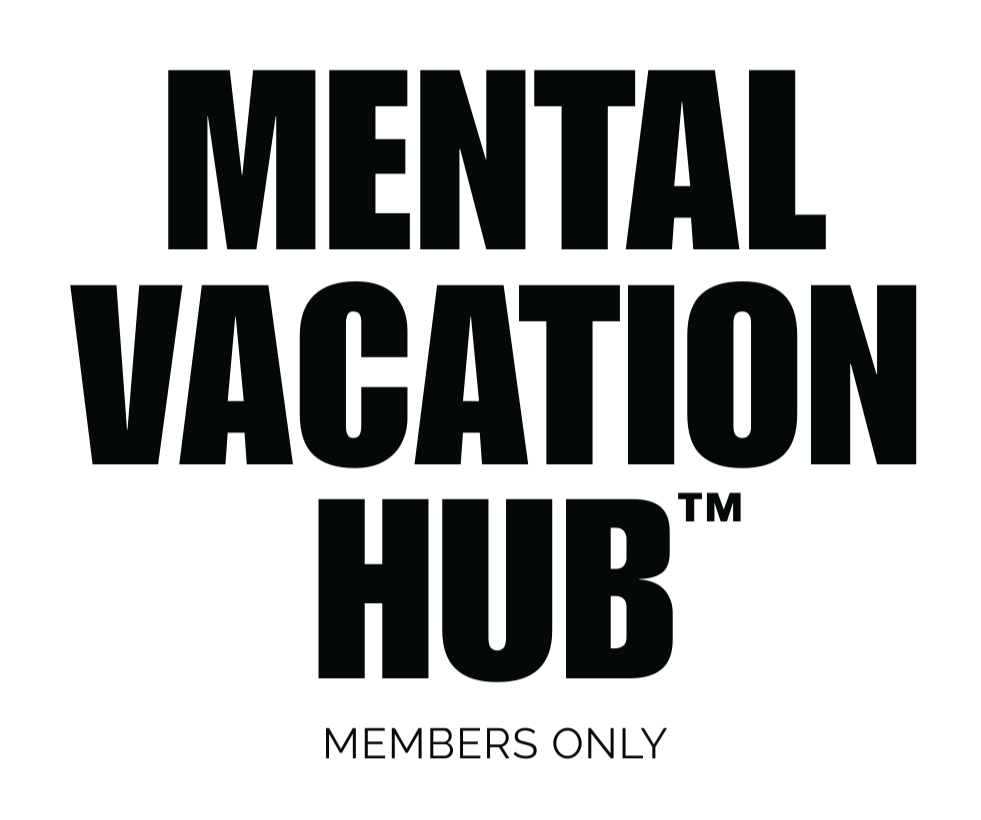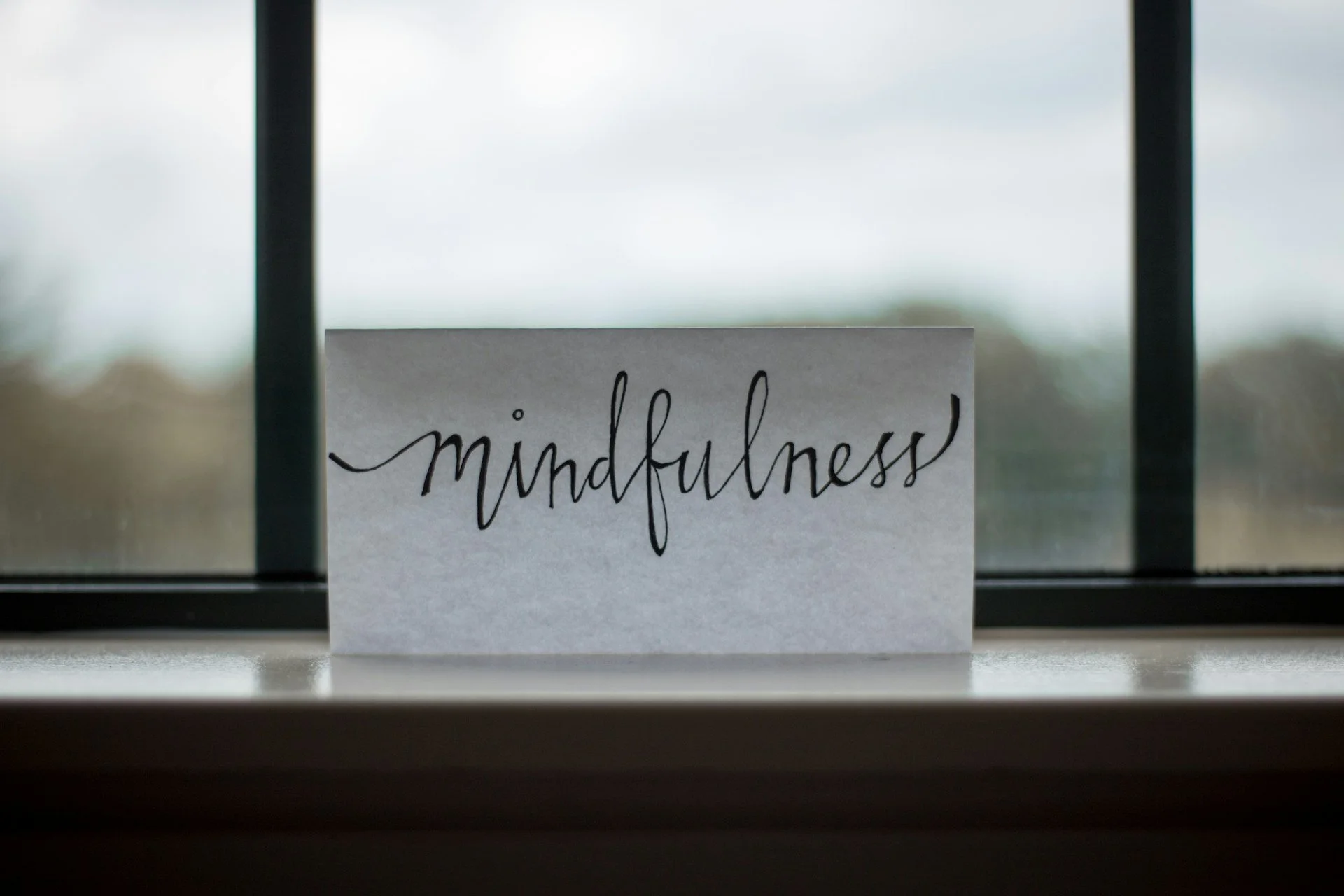What's the Best Burnout Coach? A Guide to Finding the Right Support
You're exhausted. Your brain won't cooperate and simple decisions feel impossible.
You've tried therapy. You've read the books. You've downloaded the apps.
Nothing stuck. Now you're wondering if a burnout coach might actually help. But how do you find the right one when you're already too drained to vet anyone?
This guide cuts through the noise and shows you what separates effective burnout coaching from generic wellness advice.
Burnout Coach vs. Therapist: What's the Difference?
They sound similar but serve completely different purposes.
Therapists focus on mental health diagnoses, past trauma, and clinical treatment. They're licensed professionals who diagnose conditions like depression or anxiety. Sessions explore your history and emotional patterns.
Burnout coaches focus on present-day strategies and future outcomes.
They help you rebuild energy, restructure work patterns, and prevent relapse. The best coaches use research-backed frameworks but skip the clinical diagnosis process. They work with you as a peer, not a patient.
Here's what matters: if you're dealing with severe depression, suicidal thoughts, or trauma, start with a therapist.
If you're functional but running on empty and need practical recovery strategies, a coach might be your faster path. Many high-performers prefer coaches because they're action-oriented.
You get concrete tools, not just insight.
The 5 Qualities That Actually Matter
Not all burnout coaches are created equal.
Some are repackaged life coaches with a new niche. Others genuinely understand the neuroscience of chronic stress and how to reverse it.
Here's what separates the effective ones:
1. Lived Experience with Burnout
The best coaches have been through it themselves.
They understand the shame of not being able to "just push through." They know what it's like when your brain won't cooperate and simple tasks feel insurmountable. They've experienced the physical symptoms, including brain fog and cynicism.
Lived experience creates peer-to-peer credibility.
You're not being lectured by someone who's never missed a deadline or felt the weight of impossible expectations. You're working with someone who knows the territory. They can anticipate your resistance, validate your experience, and guide you through recovery phases because they've walked the path.
This matters more than credentials.
2. Research-Backed Frameworks
Effective coaches don't rely on generic wellness platitudes.
They use validated assessment tools like the Copenhagen Burnout Inventory or Maslach Burnout Inventory. They understand the stages of burnout and tailor strategies accordingly. They draw on neuroscience, organizational psychology, and research on burnout.
They explain why certain strategies work, not just tell you to "set boundaries."
Look for coaches who can articulate their methodology clearly. They should explain how burnout affects your brain, why rest alone doesn't fix it, and what specific interventions address each stage. They should have a structured program with clear phases, not just open-ended conversations.
If a coach can't explain their framework, keep looking.
3. Executive or High-Performer Focus
Generic burnout coaching often misses the mark for executives.
Your burnout isn't caused by poor time management or lack of self-care. It's systemic, tied to impossible workloads, chronic stress, and the pressure to perform at unsustainable levels. You need someone who understands high-performer psychology.
The best coaches help you recover without losing your competitive advantage.
They understand that you're not willing to sacrifice excellence for balance. They know you need strategies that work within high-stakes environments, not idealized wellness advice. They respect your drive while helping you channel it sustainably.
If a coach doesn't understand your professional context, they can't help you effectively.
4. Low Cognitive Load Communication
When you're burned out, long coaching calls and complex homework drain you further.
The best coaches communicate primarily through written formats. They offer templates and checklists. They keep sessions focused and efficient. They respect that your decision-making capacity is compromised.
This is a practical consideration most coaches overlook.
They assume you have bandwidth for weekly hour-long calls, detailed journaling exercises, and elaborate homework. But burnout destroys your executive function. You need structure, simplicity, and clear next steps.
Pay attention to how a coach communicates during your initial conversation.
5. Structured, Measurable Programs
The best coaches offer clear milestones and tracking systems.
You know where you are in the recovery process and what comes next. This matters because burnout destroys your ability to plan and execute. You need someone who reduces cognitive load, not adds to it.
Avoid coaches who offer open-ended "let's see where this goes" arrangements.
Your brain needs structure when it's depleted. You need a roadmap, tracking systems, and measurable progress indicators. Without these, you have no way to know if coaching is working.
Red Flags: When to Walk Away
Some coaches do more harm than good.
If a coach suggests your burnout is entirely your fault or that you just need better boundaries, run. Burnout is a systemic issue, not a personal failure. Coaches who blame you for your condition don't understand organizational factors that drive burnout.
Real recovery takes 6 to 18 months, depending on your stage.
Anyone promising a 30-day transformation is selling false hope. Burnout develops over years and recovery requires rebuilding your nervous system, cognitive capacity, and energy reserves. Quick fixes don't exist.
Watch out for coaches who:
Promise rapid transformation
Blame you for your burnout
Lacks a clear program structure
Diagnose mental health conditions without licensing
Can't articulate how you'll measure progress
Communicate primarily through long phone calls
Offer vague, open-ended arrangements
If something feels off during your initial conversation, trust that instinct.
How to Evaluate a Coach
Start with their background and experience.
Have they personally recovered from burnout? Do they specialize in your demographic? What was their professional background before coaching? A coach who's worked in high-stakes environments will grasp your situation faster than someone who hasn't.
Examine their methodology carefully
What assessment tools do they use? Is their program structured with clear phases? Do they reference research or frameworks? Ask them to walk you through their process. A good coach can explain their approach in concrete terms. They can tell you what happens in week one versus week twelve.
Consider the logistics and fit
What's the time commitment? How do they communicate? What's included in the program cost? Does their communication style match your preferences? Do you feel heard or lectured during the initial conversation?
Ask about results and outcomes
Can they share client outcomes? Do they track measurable progress? What happens if you're not seeing results? Good coaches have data on their effectiveness. They can tell you what improvements clients typically see and how they handle situations where progress stalls.
The Best Coach Depends on Your Situation
There's no universal "best" coach.
The right fit depends on your burnout stage, professional context, and recovery goals. Someone in early-stage burnout needs different support than someone in severe burnout.
If you're in early-stage burnout
You might benefit from a coach who focuses on prevention and optimization.
Look for programs that help you restructure work patterns before you crash. You need someone who can help you identify warning signs and build sustainable work rhythms.
If you're in mid-stage burnout
You need a coach with a structured recovery program.
Prioritize those who understand the neuroscience of depletion and offer phase-based approaches. You need clear milestones and tracking systems because your brain can't plan effectively right now.
If you're in severe burnout
Start with medical and therapeutic support first.
Once stabilized, a coach can help you rebuild and prevent relapse. If you're experiencing physical symptoms, inability to work, or suicidal thoughts, coaching isn't enough.
What to Expect from Coaching
The best coaching relationships follow a predictable arc.
Phase 1: Assessment and Stabilization (Weeks 1-4)
You complete burnout assessments and identify your stage.
You implement immediate stabilization strategies. The goal is to stop the bleeding and create a foundation for recovery. You're not trying to improve yet, just prevent further deterioration.
Phase 2: Energy Restoration (Weeks 5-12)
You rebuild your physical and cognitive capacity through sleep optimization, nutrition adjustments, and strategic rest.
You'll see improvements in sleep quality, physical symptoms, and baseline energy. You're still not back to full capacity, but you're no longer in crisis.
Phase 3: Capacity Building (Weeks 13-20)
You gradually increase your workload while monitoring for relapse signs.
Your coach helps you identify sustainable work patterns and decision-making frameworks. You're testing your limits, learning what you can handle, and building confidence.
Phase 4: Edge Restoration (Weeks 21-24+)
You reclaim your competitive advantage without returning to burnout patterns.
This phase focuses on high-leverage activities and maintaining your recovery long-term. It's ongoing work that extends beyond the formal coaching relationship.
Throughout the process, you track metrics like energy levels, sleep quality, decision-making speed, and productivity.
Alternatives to One-on-One Coaching
Not everyone needs or can afford individual coaching.
Group coaching programs
Offer structure and peer support at lower price points.
You lose personalization but gain community and shared experience. This works well if you're self-directed and don't need intensive support.
Digital programs and courses
Provide frameworks and tools without live support.
Best for self-directed individuals in early-stage burnout. This is the most affordable option but requires the most self-discipline.
Corporate burnout programs
They are increasingly common.
If your employer offers support, use it. Just ensure the program is confidential and genuinely supportive, not punitive. Ask about confidentiality policies and how the data is used.
Peer accountability partnerships
Pair you with someone at a similar stage.
You support each other through recovery using shared frameworks and check-ins. This is free and can be highly effective if both people are committed.
You May Also Like:
FAQ
How much does burnout coaching typically cost?
Individual burnout coaching ranges from €200 to €500 per session or €2,000 to €10,000 for structured programs lasting 3 to 6 months.
Group programs and digital courses cost €500 to €2,000. Corporate programs are often free to employees.
Consider the ROI: effective coaching can help you avoid job loss, medical expenses, and months of reduced productivity.
How long does burnout recovery take with a coach?
Recovery timelines vary by burnout stage.
Early-stage burnout may improve in 3 to 6 months. Mid-stage burnout typically takes 6 to 12 months. Severe burnout can require 12 to 18 months or longer.
Coaching accelerates recovery by providing structure and preventing common mistakes, but there are no shortcuts.
Can I recover from burnout without a coach?
Yes, many people recover independently using research-backed frameworks, self-assessment tools, and community support.
Coaching accelerates the process and reduces trial-and-error, but it's not mandatory.
Consider your resources, severity of burnout, and whether you have the cognitive capacity to navigate recovery alone.
What's the difference between a burnout coach and a wellness coach?
Burnout coaches specialize in chronic stress recovery and understand the neuroscience of depletion.
Wellness coaches focus on general health optimization and lifestyle balance. Burnout coaching is more structured, research-backed, and focused on measurable recovery outcomes rather than general well-being.
Should I see a therapist and a burnout coach at the same time?
This can be effective if roles are clear.
Therapists address mental health diagnoses and emotional processing. Coaches focus on practical strategies and future outcomes. Ensure both professionals know you're working with the other and that their approaches complement rather than conflict.
Conclusion
The best burnout coach isn't the one with the biggest Instagram following or the fanciest credentials.
It's the one who understands your specific situation, offers a structured path forward, and communicates in a way that works for your depleted brain. Start with a discovery call or blueprint session. Pay attention to whether you feel understood or judged. Notice if they're listening or selling.
Trust your gut, even when your brain is foggy.
Recovery is possible. The right support makes it faster and more sustainable. Choose carefully, commit fully, and give yourself permission to heal at your own pace.
Need more burnout guidance? If you're looking for practical steps beyond coaching, explore my Burnout SOS Handbook. It's a clear, supportive guide with strategies to understand what's happening, survive the hardest days, and take steady steps toward recovery.
Ready to recover? Get Your Burnout SOS Handbook:

Burnout SOS Handbook: Practical steps to understand, survive, and recover from your burnout. Easy to follow - just right for a brain-fogged head. Start your healing today!
Take the Burnout Test
Our 5-minute Burnout Test cuts through the confusion and gives you a personalized snapshot of where you stand and what comes next.
Start the test →




